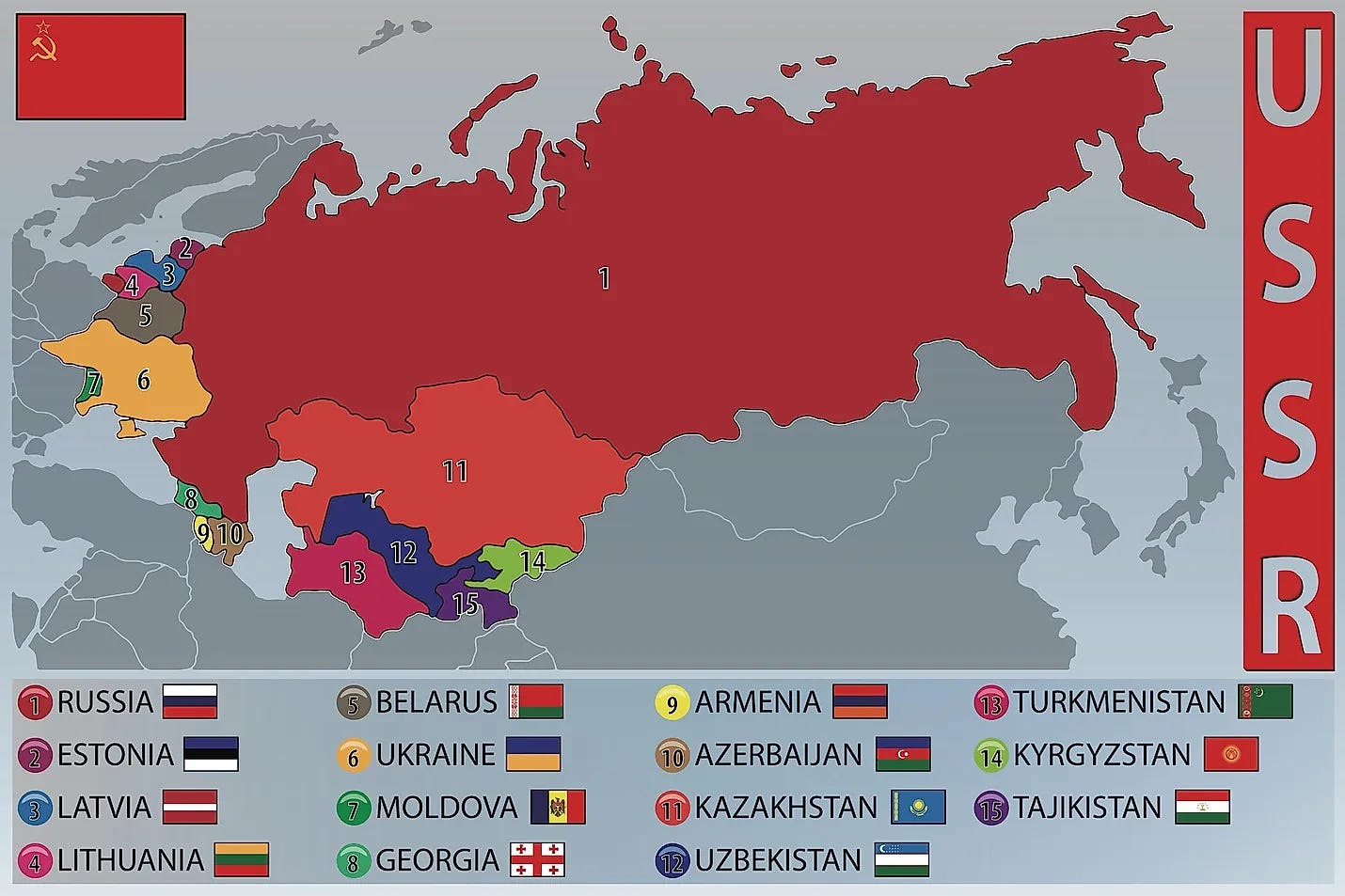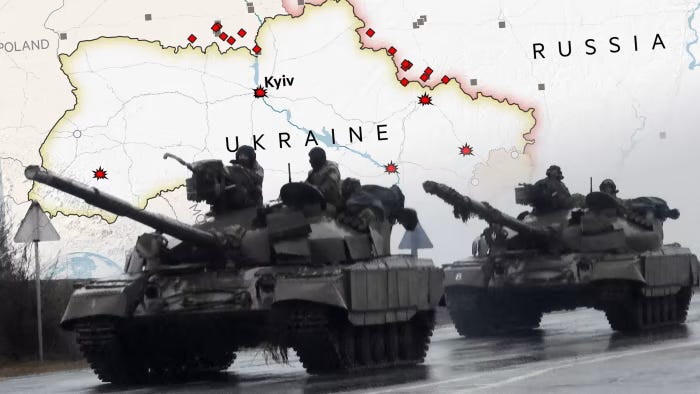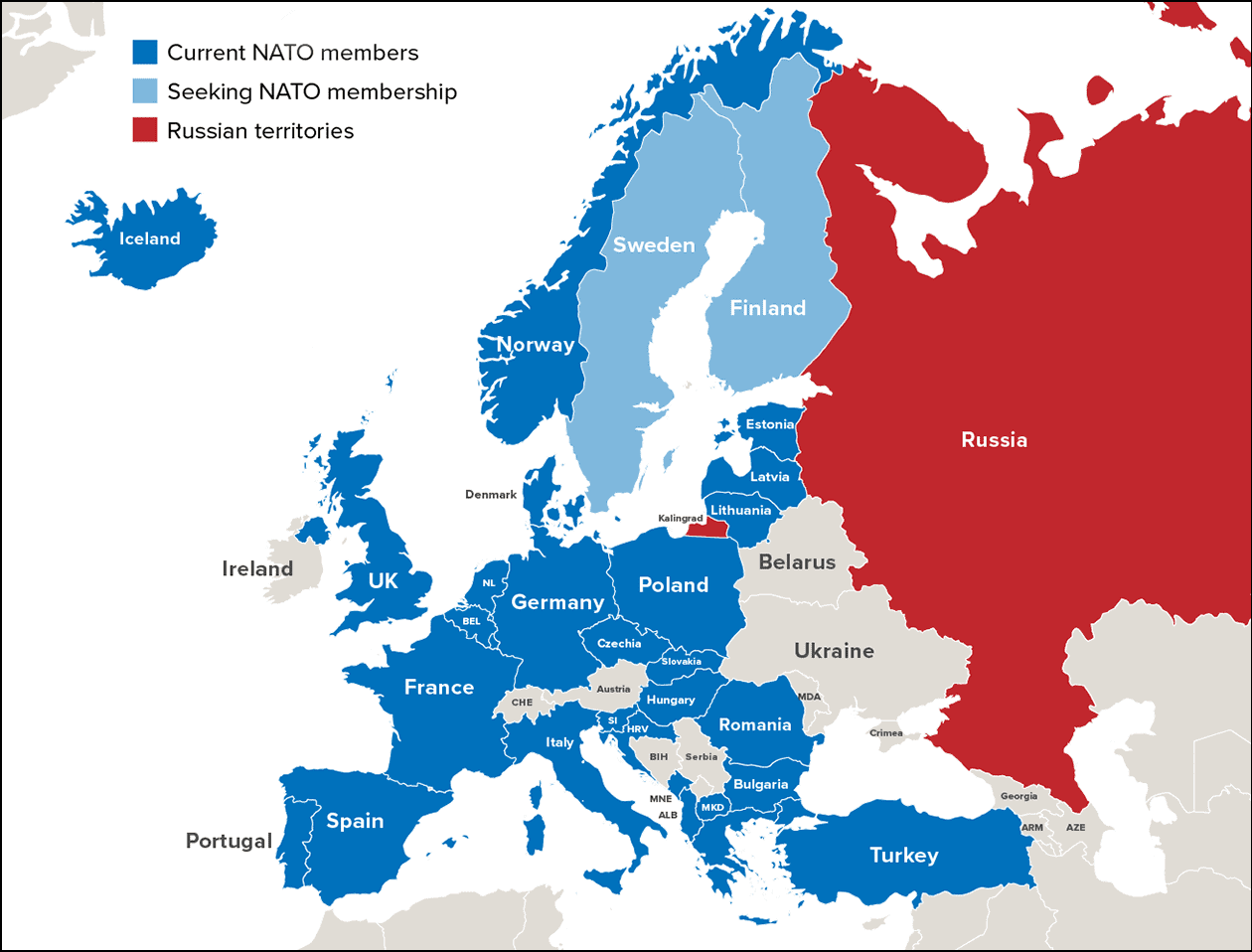Geopolitics: The Russian World Theory
As announced, the first post on geopolitics. We are starting with Russia foreign policy
In order to understand the driving motivation behind Russia's recent geopolitical moves, one has to understand one of the most influential yet controversial concept in Russia, namely the “Russian World” theory.
Gaining full maturity under the leadership of President Vladimir Putin, this theory advocates for a unified Russian cultural and political sphere that extends beyond the country's geographical borders
The concept of the "Russian World" (Русский мир ,Russkiy Mir) traces its roots to the post-Soviet identity crisis in Russia. Facing a Russia that has drastically lost its geopolitical influence, the Russian World theory emerged as a means to reclaim its lost influence and reassert its cultural and historical significance.
So basically cope.
This theory is anchored in the belief that Russia is not merely a nation-state but a civilization-state with a unique cultural mission and a responsibility to protect its people and heritage, wherever they may be. This last part important, because the dissolution of the Soviet Union left a significant number of Russian speaker outside what is today Russia.
The key points of the theory are:
Cultural Unity: Shared language, religion, and historical experiences are seen as creating a unique "Russian World" civilization.
Beyond Ethnicity: While ethnicity plays a role, the theory extends to anyone who identifies with Russian culture, regardless of ancestry
"Protecting" Compatriots: The Russian government feels a duty to protect the rights and interests of ethnic Russians and Russian-speaking minorities living abroad, particularly if they feel threatened
Countering the West: The "Russian World" is often presented as an alternative to Western liberalism and a bulwark against its perceived encroachment.
In theory, the Russian World concept is to be accomplished by strategically applying Russian soft power. In recent years, the Russian government has spent vast resources in a drive to promote Russian culture, primarily through the common attribute of Orthodox Christianity.
Here, The Russian Orthodox Church plays a pivotal role in promoting Russian values and has often aligned with the state’s foreign policy, especially in areas with Orthodox Christian populations. At this point, The Russian Orthodox Church is pretty much an extended arm of the Russian government
Other avenues of Russian influence are via cultural diplomacy, where Russia has established cultural centers and Russian schools abroad to nurture a sense of Russian identity among the diaspora as well as a media outreach campaign, where Russian media outlets broadcast in multiple languages to shape perceptions and spread Russia's viewpoint on global affairs.
The geopolitical use of the Russian World theory is most evident in Russia’s recent military actions and foreign policy decisions. The annexation of Crimea in 2014 and the support for separatist movements in Eastern Ukraine are justified through the need to protect Russian-speaking populations, and Putin has argued that Ukraine is inherently part of the Russian World due to historical and cultural ties.
This doctrine has also been evident in Russia's involvement in regions like the Baltic states and Central Asia, where large Russian-speaking communities exist. In fact, the Russian speaking population has been traditionally been a major disruptive factor in the Baltic states, resulting in them being justifiable nervous after Russia’s invasion of Ukraine.
However, these countries are all NATO allies, making an overt invasion by Russia unlikely. Nevertheless, the soft power techniques outlined above my still be used to assert pressure on the Baltic states and cause government sponsored civil disturbances
.
At the national level, the Russian government has enacted laws and policies that facilitate the integration of Russian speakers from abroad into the Russian Federation. These include simplified processes for acquiring Russian citizenship and laws aimed at protecting the rights of Russian speakers, regardless of their country of residence. Such measures reinforce the concept of a greater Russian world that transcends national boundaries.
Surprising no one, The Russian World theory has been met with significant skepticism and opposition on the international stage. Critics argue that it serves as a pretext for Russian expansionism and infringes on the sovereignty of other nations, basically a form of Russian neo imperialism.
Countries with significant Russian-speaking populations, particularly those in Eastern Europe and Central Asia, view this theory as a threat to their territorial integrity and political independence. These feeling have only intensified after the Russian invasion of Ukraine.
Western nations and international organizations have also expressed concerns about the implications of this theory for global security and the rule of law. Sanctions and diplomatic pressures have been used to counteract Russia’s assertive policies that stem from the Russian World ideology.
So to summarize, The Russian World theory is a powerful expression of Russia's desire to regain its status as a leading global power.
By weaving together cultural, political, and military strands, Russia seeks to create a sphere of influence that adheres to its interests and historical narratives.
However, the theory remains contentious, posing challenges to the principles of national sovereignty and international norms. As the global situation evolves, the impact of the Russian World theory will likely remain a critical factor in Eurasian geopolitics, driving both Russian foreign policy as well as Western strategic thinking.
I hope you’ve enjoyed the first post on this topic.
If there are specific topic you would like to see covered, drop a comment.




